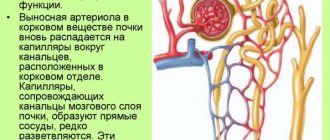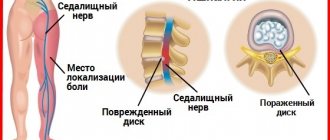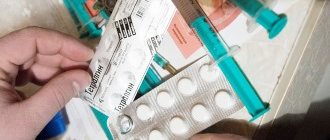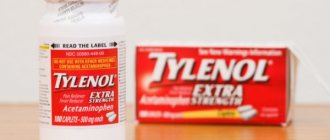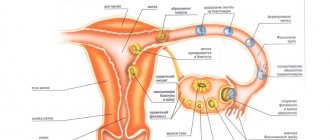Write a review
Reviews: 0
Manufacturers: Magno-Humphrises Labs. Inc.
Active ingredients
- Caffeine
- Paracetamol
Disease class
- Other and unspecified lesions of the oral mucosa
- Joint pain
- Myalgia
- Fever of unknown origin
- Headache
- Other constant pain
- Dysmenorrhea, unspecified
Clinical and pharmacological group
- Not indicated. See instructions
Pharmacological action
- Antipyretic
- Analgesic (non-narcotic)
Pharmacological group
- Anilides in combinations
Instructions for use
Migrenol is a combined non-steroidal drug with anti-inflammatory, antipyretic and analgesic effects.
Latin name - Migrenol (Migrenolum)
Commercial name - Migrenol
Release form. The drug is available in tablet form. Migrenol film-coated tablets. Blisters contain 20 pieces.
Types of drug:
- Migrenol.
- Migrenol PM (night).
- Migrenol Extra
Packaging. Tablets are available in blisters of 8 and 15 pieces.
Composition of the medicinal product. Main medicinal ingredients: each tablet contains paracetamol (acetaminophen) at a dose of 500 mg, caffeine at a dose of 65 mg.
The composition of Migrenol PM (night) includes: paracetamol - 500 mg, diphenhydramine hydrochloride - 25 mg.
The composition of the drug Migrenol Extra, in addition to paracetamol and caffeine, additionally includes acetylsalicylic acid.
Binding chemical compounds: cellulose microcrystals, starch, sucrose, magnesium carbonate.
Dosage form – film-coated tablets (8 or 15 pieces in a blister, 1 or 2 blisters in a cardboard box)
Pharmacological action of the drug. Migrenol and its Extra form are a non-narcotic non-steroidal anti-inflammatory drug with antipyretic and analgesic effects.
Acetaminophen is a non-narcotic antipyretic analgesic. It has an inhibitory effect on cyclooxygenase-1 and cyclooxygenase-2 in the central nervous system. Acts directly on the center of thermoregulation and pain. During inflammatory processes, cellular peroxides neutralize the effect of paracetamol on COX-2, and therefore the anti-inflammatory effect of the drug is weakly expressed. Acetaminophen does not affect the synthesis of prostaglandins, thereby having no effect on the water-salt balance of sodium and chlorine and the rheological properties of the blood. Does not have an ulcerogenic effect on the mucous membrane of the stomach and intestines. The formation of methemoglobin is unlikely. Paracetamol is metabolized in the liver as a result of conjugation with glucuronic acid and sulfates.
Caffeine has a psychostimulant effect and directly stimulates the psychomotor centers of the brain. It has a slight analeptic effect and potentiates the effect of analgesics and other non-steroidal anti-inflammatory substances. Eliminates side effects of non-steroidal anti-inflammatory substances such as drowsiness and fatigue. Increases brain activity and physical performance.
Migrenol PM is a non-narcotic non-steroidal anti-inflammatory drug with an antipyretic, analgesic and antihistamine mechanism of action. Diphenhydramine hydrochloride in its composition has an antihistamine effect due to blocking H1-histamine receptors and a sedative effect due to blocking H3-histamine receptors in the central nervous system.
Migrenol
Migrenol is a combination drug that contains the non-narcotic painkiller paracetamol and the psychostimulant caffeine. Paracetamol has an analgesic, antipyretic and mild anti-inflammatory effect. The nature of the action is due to the suppression of the production of nociceptive and inflammatory mediators, as well as the effect on the area of the hypothalamus that regulates body temperature. Does not affect the peripheral synthesis of prostaglandins, which minimizes the risk of negative effects on water-electrolyte balance and the inner lining of the digestive tract. Caffeine, in turn, stimulates psychomotor activity, potentiates the analgesic effect of paracetamol, gives vigor, increases overall vitality, provides a positive psycho-emotional background, improves mood, and increases ability to work. Paracetamol is well absorbed in the gastrointestinal tract, evenly penetrating into the biological fluids of the body. It practically does not bind to plasma proteins. Subjects to metabolic transformations in the liver. Elimination from the body is carried out by the kidneys. The half-life varies from 1 to 3 hours. Caffeine is just as quickly absorbed in the digestive tract, oxidizing almost completely and losing its methyl group in the liver. Elimination from the body is carried out by the kidneys. Half-life is 4-9 hours. Migrenol is indicated for mild to moderate headaches (including migraine), muscle pain, pain associated with damage to peripheral nerve endings, joint pain, painful menstruation, and toothache. The antipyretic potential of the drug is in demand in eliminating febrile symptoms due to influenza and acute respiratory infections.
Single dose – 2 tablets. The maximum frequency of use is 4 times a day (accordingly, the maximum daily dose is no more than 8 tablets). The duration of use should not exceed 10 days. Possible adverse reactions: skin rashes, urticaria, dyspeptic symptoms (nausea, abdominal pain), in rare cases - anemia, decreased platelet levels. With prolonged use, the risk of toxic effects of paracetamol on the liver and kidneys increases. Migrenol is not used for severe renal and hepatic dysfunction, high blood pressure, somnological disorders, individual intolerance to active or auxiliary substances. In pediatric practice, it is used starting from the age of 12. Caffeine increases the risk of sudden abortion and the birth of a premature baby, so Migrenol is not used during pregnancy. The same is true for the breastfeeding period, because... Caffeine passes into breast milk and may have adverse effects on a breastfed baby. While taking Migrenol, it is recommended to limit the consumption of products containing caffeine to avoid overdose. If the duration of treatment exceeds 7 days, monitoring of blood counts and liver function should be organized. As part of self-medication (without consulting a doctor), Migrenol can be taken for no more than 3 days to relieve fever and no more than 5 days to relieve mild to moderate pain. Alcohol consumption during the course of medication increases the risk of the hepatotoxic effects of paracetamol.
Indications for use
Migrenol can be used for moderate headaches, migraines, and other pain syndromes, including toothache.
Migrenol is intended for the relief of pain of various localizations
Migrenol Extra stops even the most severe migraine attacks.
Use for febrile syndrome during acute respiratory diseases reduces intoxication and normalizes body temperature. It also relieves toothache, muscle and rheumatic pain, and painful menstruation. The drug copes well with the symptoms of algodismenorrhea.
Analogs
Structural analogues of Migrenol include: Panadol, Migrenium, Solpadeine Fast, Strimol Plus, Paralen Extra. Analogs of the drug with a similar mechanism of action include: Safiston, Pentalgin, Antigrippin, Paracetamol, AntiFlu, Grippostad, Prohodol, TeraFlu, Gevadal, Prostudox, Grippoflu, Trigan-D, Fervex, Daleron, Rankof, Gripend HotActiv, Rinza, Dolaren, Flustop, Rinzasip, Febricet, Influblok, Rinicold, Ifimol, Solpadein, Caffetin, Flutabs, Strimol, Calpol, Maxicold, Coldrex, Unispaz, Lemsip, Saridon, Efferalgan, Maxicold, Flucomp, No-shpalgin, Perfalgan, Fastorik, Tsefekon D, Stopgripan, Flucoldex .
Contraindications
The night form has the following contraindications:
- Hypersensitivity, age under 12 years, pregnancy and lactation.
- Snoring during pregnancy should never be treated with these medications!
Migrenol Extra should not be taken if you are individually sensitive or intolerant to the components of the drug. With a significant decrease in the functional activity of the kidneys and liver. The use of the drug by children under 12 years of age is prohibited. Another contraindication is the genetic absence of glucose-6-phosphate dehydrogenase. Use during pregnancy and lactation is not recommended. The use of the drug is prohibited for diseases such as hemophilia, glaucoma, vitamin deficiency, hemorrhagic diathesis, hypoprothrombinemia, increased excitability of the nervous system.
Use with caution in patients with arterial hypertension, severe atherosclerosis, status epilepticus, Gilbert's syndrome, glaucoma.
Patient opinions
Today there are many adherents of the drug "Migrenol". Reviews from such people show that, having tried a large number of medications in an attempt to relieve unbearable pain, they tried this remedy. The effect was magnificent. The unpleasant pain went away quite quickly. Since then, such people practically never part with the medicine, believing that the “saving” remedy should always be at hand.
The drug "Migrenol PM" is also appreciated. People who have experienced insomnia as a result of unpleasant pain are happy to share their observations about this remedy. They indicate complete normalization of sleep and elimination of pain.
Moreover, despite the impressive list of side effects described in the instructions, patients with such manifestations are extremely rare.
Drug interactions
A toxic effect can be caused by simultaneous use of paracetamol with barbituric drugs, rifampicin, salicylamides, antiepileptic drugs and other stimulants of microsomal oxidation. As a result of their interaction, paracetamol metabolites become toxic and affect the liver parenchyma. With long-term use of paracetamol, it enhances the effect of anticoagulants. The use of paracetamol in combination with alcoholic beverages leads to a high risk of developing a hepatotoxic effect.
Acetylsalicylic acid, which is part of Migrenol Extra, potentiates the effect of: heparins and indirect anticoagulants, hyperglycemic drugs, glucocorticosteroids, reserpine. Concomitant use with other non-steroidal analgesics significantly increases the risk of side effects. Reduces the diuretic effect of drugs (spironolactone, furosemide) and antihypertensive drugs.
Caffeine - reduces the absorption of calcium, including in food products, reduces the effectiveness of sleeping pills and narcotic substances.
Side effects
The use of Migrenol in some cases may be accompanied by allergic reactions (urticaria, skin rash, angioedema) and dyspeptic disorders (including epigastric pain, nausea). In rare cases, thrombocytopenia, hemolytic anemia were observed during the course, and with prolonged use of high doses - nephrotoxicity, hepatotoxicity, pancytopenia.
Symptoms of overdose include: stomach pain, nausea, loss of appetite, vomiting, anorexia, pale skin; increased activity of liver transaminases, hepatonecrosis (the severity of necrosis depends on the degree of overdose), increased prothrombin time. The clinical picture of liver damage is recorded after 1-6 days.
In this condition, SH-group donors and precursors for the synthesis of glutathione-methionine should be administered 8-9 hours after taking a dose exceeding the recommended one, and N-acetylcysteine should be administered after 12 hours. In order to prevent late hepatotoxic effect, gastric lavage is recommended.
Reviews and opinions of doctors
These drugs have proven themselves well in clinical practice. In patients who were prescribed this drug, the symptoms of acute respiratory diseases and fever significantly decreased, and when prescribed in connection with various pains: dental, muscle, pain due to algomenorrhea, the drug showed high effectiveness in combating the above symptoms.
Without medical supervision, Migrenol should be taken for no more than 3 days - as an antipyretic, no more than 5 days - as an analgesic.
It is worth noting that Migrenol only relieves some manifestations of diseases and has a symptomatic effect in therapeutic therapy.
The use of the drug is possible only in complex therapy of diseases in order to influence all levels of the pathogenesis of the disease and increase the effectiveness of treatment. It is worth noting that the drug has cheaper analogues that are not inferior in effectiveness to Migrenol. Before starting to use the drug, be sure to read the contraindications and consult your doctor.
special instructions
Excessive consumption of coffee and tea (caffeine-containing products) during therapy may provoke overdose symptoms.
With prolonged use of Migrenol (more than 7 days), monitoring of the condition of the liver and peripheral blood parameters is necessary.
During treatment, the results of doping control tests for athletes may change and making a diagnosis with symptoms of an “acute abdomen” may be difficult.
In patients with hay fever and atopic bronchial asthma, the risk of allergic reactions is increased.
During the treatment period, it is necessary to stop taking ethanol (due to the increased risk of hepatotoxicity).
